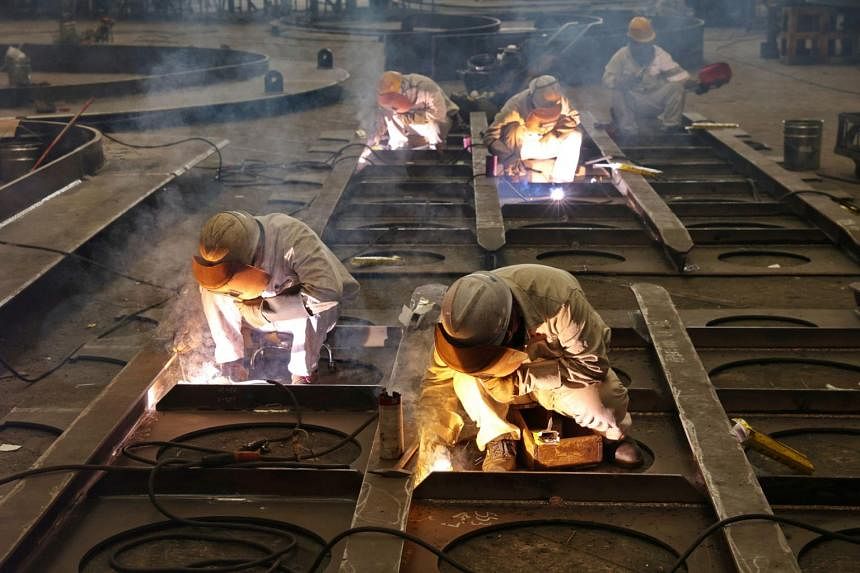BEIJING (REUTERS, BLOOMBERG) - China’s factory-gate inflation cooled to its slowest pace in 14 months in May, depressed by weak demand for steel, aluminium and other key industrial commodities due to tight Covid-19 curbs and bucking the global trend of rapidly accelerating prices.
The producer price index (PPI) rose 6.4 per cent year on year, the National Bureau of Statistics (NBS) said on Friday (June 10), after an 8 per cent rise in April. It was the weakest reading since March 2021.
The consumer price index (CPI) gained 2.1 per cent from a year earlier in May, in line with April’s growth.
The cooling inflation marks a sharp contrast to decades-high readings seen in other major economies and reflects the slump in demand due to China’s strict Covid-19 controls, which has chilled factory and retail activity in recent months.
The modest price pressures also allow China’s central bank to release more stimulus to prop up the economy even as the monetary authorities in most other countries scramble to hose down inflation with aggressive interest rate hikes.
“This is not an economy where the central bank really has to worry about inflation,” Dr Michael Spencer, chief economist and head of research at Deutsche Bank, said in an interview on Bloomberg Television. “Even if we get a bounce-back in the third quarter as, hopefully, these lockdowns come to an end, it is going to bounce back to a very moderate inflation rate, modestly below the trend of growth in China.”
Global commodity prices are not as high as they were earlier this year when the war in Ukraine broke out, contributing to the moderation in factory-gate inflation.
The world’s second-largest economy has slowed significantly in recent months, hit by strict Covid-19 controls, disrupting supply chains and jolting production and consumption.
China’s Cabinet in late May announced a package of 33 measures covering fiscal, financial, investment and industrial policies to revive its economy.
Last month, widespread Covid-19 lockdowns shut factories and stores, choking purchases of metals-intensive products from cars to appliances.
Chinese auto sales grew in May from April but were still down 16 per cent year on year, according to the Chinese Passenger Car Association.
Beijing has taken a series of measures, from cutting benchmark lending rates to allowing delays on loan repayments, to arrest the economic slowdown.
Goldman Sachs last month lowered its 2022 growth forecast to 4 per cent from 4.5 per cent, below China’s official target of around 5.5 per cent.

